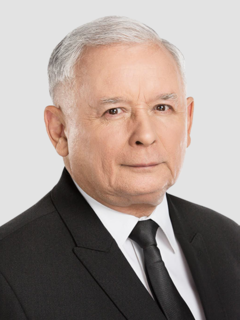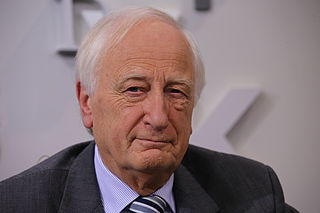A Quote by Jaroslaw Kaczynski
There are historic examples where a soft domination of certain states worked well. For instance the US, who dominated the Western alliance after World War II - with a giant army, an enormous population, and its globally superior economic power. This role is quite different for Germany today.
Related Quotes
America felt victorious and generous after World War II. They had also learned from the mistakes after World War I when they imposed punishment on Germany. What became of Germany? A Nazi dictatorship which threatened the world. Today's Germany doesn't feel as prosperous and generous as America then. But actually, Germany still is very prosperous.
Germany's potential makes up about 20% of the EU's overall economic power, including Great Britain. The German army is by no means strong enough to guarantee the security of the EU's two endangered flanks - in the east and in the south. So all that remains for Germany is partnerships with its neighbours and other EU member states. Germany should stick to that role.
There is a myth that the New Deal programs on their own pulled the US out of the Great Depression and created the conditions for the economic boom after World War II. As an economist, I can tell you, that is not true. In reality, it was mainly World War II that launched the boom - the massive war mobilization, the horrifying destruction and death caused by it, and then the reconstruction in its aftermath. he US was the only advanced capitalist country that was not bombed during the war.
The threat of mutually assured destruction worked for the United States during the Cold War because it had proved its willingness to drop nuclear bombs on enemy cities at the end of World War II. It might work less well for Israel, because the Israeli Air Force has never deliberately targeted a large civilian population center, and its leaders have said its morality would not permit it do so.
I think in many ways, the Spanish Civil War was the first battle of World War II. After all, where else in the world at this point did you have Americans in uniform who were being bombed by Nazi planes four years before the U.S. entered World War II? Hitler and Mussolini jumped in on the side of Francisco Franco and his Spanish nationalists, sent them vast amounts of military aid, airplanes, tanks - and Mussolini sent 80,000 ground troops as well - because they wanted a sympathetic ally in power. So I think it really was the opening act of World War II.
Germany is not the only country that one could call post-heroic. But there is an additional aspect for Germany when it comes to this generally Western stance - one which Vladimir Putin would call decadent. For almost four-and-a-half decades after World War II, we didn't have full sovereignty. During this period, we existed in a niche of global politics. This experience of limited sovereignty continues to have an effect. Many Germans still have sympathy for the idea that Germany can exist as something like a large Switzerland in the middle of Europe.
And what have we now in Germany? A land of bankers and car-makers. Even our great army has gone soft. Soldiers wear beards and question orders. I am not ashamed to say I believed in National Socialism. I still wear the Iron Cross with diamonds Hitler gave me. But today in all Germany you can't find a single person who voted Adolf Hitler into power. Many Germans feel guilty about the war. But they don't explain the real guilt we share - That we lost.
It's important to remember that World War II was experienced very much as a continuity in that sense. Most of World War II in most of Europe wasn't a war; it was an occupation. The war was at the beginning and the end, except in Germany and the Soviet Union, and even there really only at the end. So the rest of time it's an occupation, which in some ways was experienced as an extension of the interwar period. World War II was simply an extreme form, in a whole new key, of the disruption of normal life that began in 1914.
As you look back in history, we [the United States] have done wonderful things, the Marshal Plan is the most obvious. After World War II, we spent billions of dollars to rebuild Europe or at least part of Europe after the devastation of World War II. We did it out of charity, but we also did it to keep the Russians from getting deeply into Europe.































